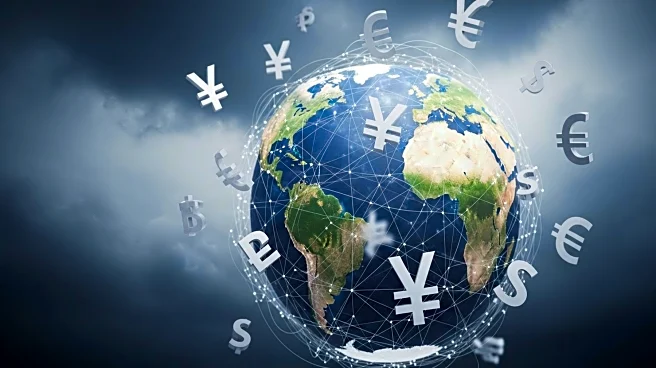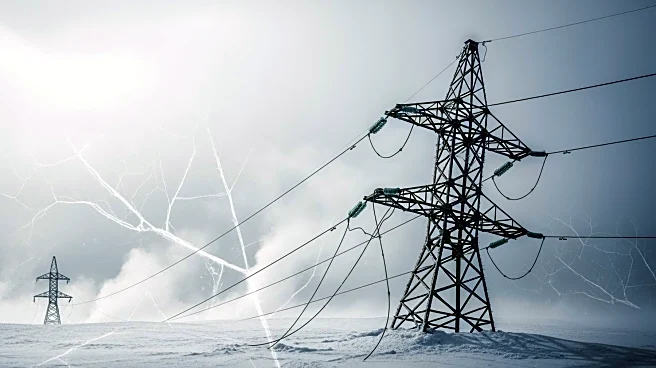What's Happening?
President Trump has announced plans to impose new triple-digit tariffs on Chinese imports, following China's decision to tighten control over rare earth minerals. These minerals are crucial for the production of electronics, automobiles, and semiconductors, and China holds a dominant position in their global supply chain. The announcement has reignited fears of a trade war between the U.S. and China, leading to significant declines in major Asian stock markets. The Hang Seng Index in Hong Kong fell by 1.7%, while South Korea's KOSPI dropped 0.72%. The Shanghai composite index also saw a decrease of 0.2%. The proposed tariffs would increase duties on Chinese imports to approximately 130%, nearing the peak levels seen during the height of previous trade tensions.
Why It's Important?
The escalation of trade tensions between the U.S. and China could have widespread implications for global markets and industries. The rare earth minerals affected by China's restrictions are vital for the tech and automotive sectors, potentially disrupting supply chains and increasing production costs. The U.S. stock market has already reacted negatively, with significant drops in major indices. If the tariffs are implemented, it could lead to increased prices for consumer goods and further strain international trade relations. The situation underscores the fragile nature of global economic ties and the potential for political decisions to impact economic stability.
What's Next?
China has vowed to implement countermeasures if President Trump proceeds with the tariff increase, indicating a potential for further escalation. The Chinese commerce ministry has called for continued negotiations to resolve the issues, while defending their restrictions on rare earths as legitimate. The Trump administration has shown some willingness to engage in further talks, suggesting a possible avenue for de-escalation. Vice President JD Vance has urged China to choose a path of reason, emphasizing the U.S.'s strategic advantages. The coming weeks will be crucial in determining whether the two nations can reach a compromise or if the trade tensions will continue to escalate.
Beyond the Headlines
The trade tensions highlight the strategic importance of rare earth minerals and the geopolitical leverage they provide. China's control over these resources gives it significant influence in global tech and manufacturing industries. The situation also raises questions about the sustainability of current trade practices and the need for diversification in supply chains. Long-term shifts may include increased investment in alternative sources of rare earths and a reevaluation of trade policies to mitigate similar risks in the future.








